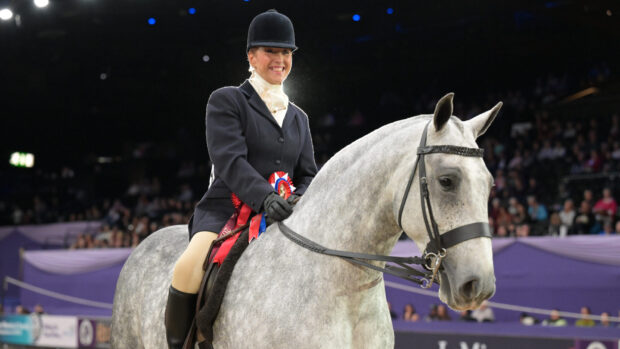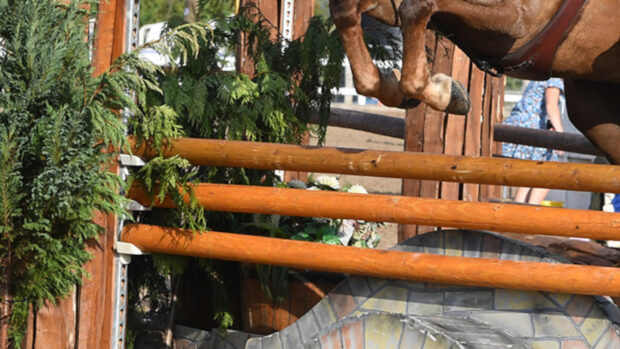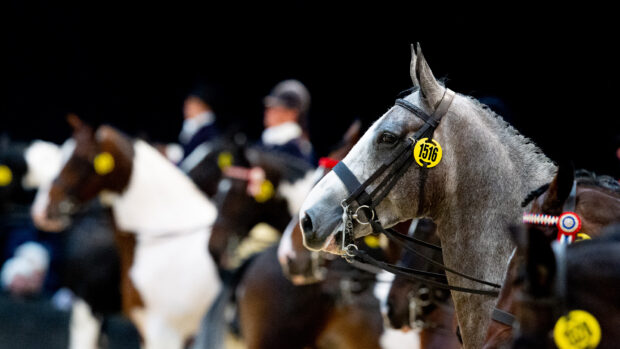Showing has become increasingly popular over the last few years and, as a result, the range of classes available has widened. Whatever the age, colour, type or temperament of your horse there will probably be a class where he can put his talents to good use. Some “fun” classes, including coloured and veteran, even have national championships.
Coloured horse:
These classes attract competitors and spectators alike and there are now nationwide qualifiers for Coloured Horse and Pony Society (CHAPS) classes, culminating in a final at the Horse of the Year Show at Wembley. The British Skewbald and Piebald Association (BSPA) also has a wide range of classes and both CHAPS and the BSPA run championship shows.
If you have got a nice skewbald or piebald, there are lots of categories available, including warmblood, show and traditional cob, vanner and hunter type.
Golden oldies: The horseworld is one place where you won¨t find ageism. Veteran classes, both in-hand and ridden, are becoming more and more popular.
Super Solvitax sponsors a veteran series with qualifiers taking place at shows around the country.
All-round winners:
Riding club horse classes offer a good chance to the all-round horse who can have a go at anything.
You will probably be asked to jump a small fence and give an individual show as part of the competition. The schedule may specify that horses must be ridden in snaffle bridles. Criteria include suitability for the rider as well as conformation and way of going.
Condition and turnout:
Have you got an eye for detail but your horse doesn’t necessarily have the star quality required for showing? Then best turned out classes are for you.
Condition and turnout classes are popular at local shows. Judges will be looking for fit, healthy animals, clean tack and well turned-out riders. Conformation and performance is not usually taken into account.
Learning curves:
In-hand and ridden ring experience classes, held at local shows, are designed to encourage novice horses and/or riders. Judging criteria may be based loosely on conformation, paces and way of going but the main aim is to give maximum experience with minimum pressure. Tack and turnout should be appropriate to your horse’s type.
Family stars: Is your horse or pony suitable for most members of the family? Is he willing but unflappable? Then family horse or pony classes could be up your street.
You will often have to negotiate an obstacle course – which could include anything from riding past a line of washing to opening a gate – and manners and obedience take priority over conformation.


